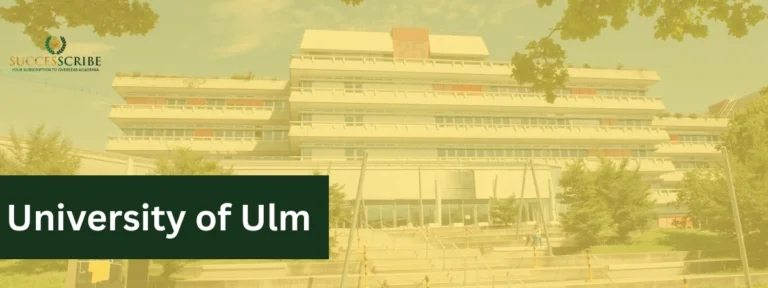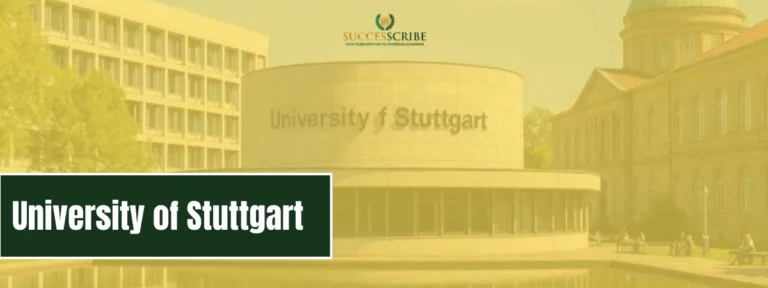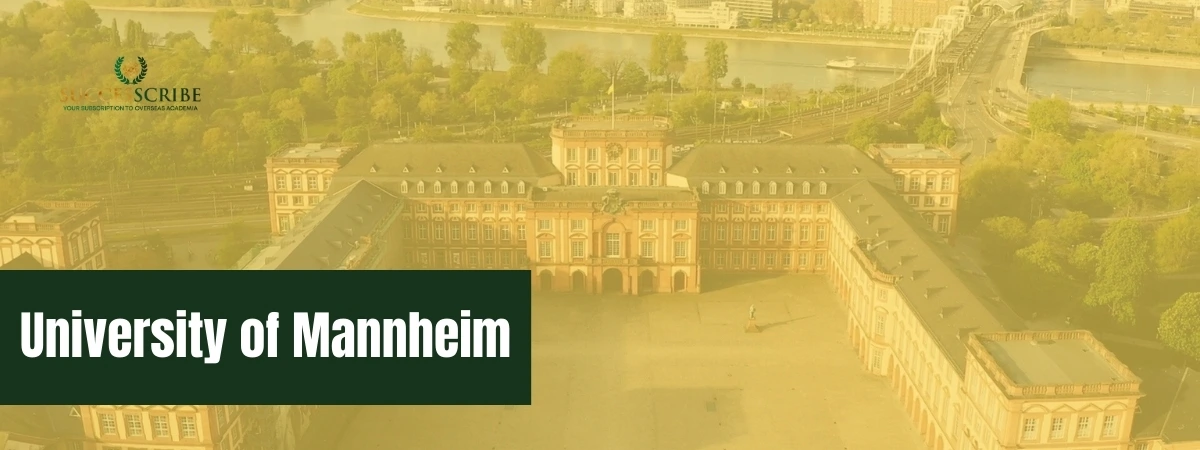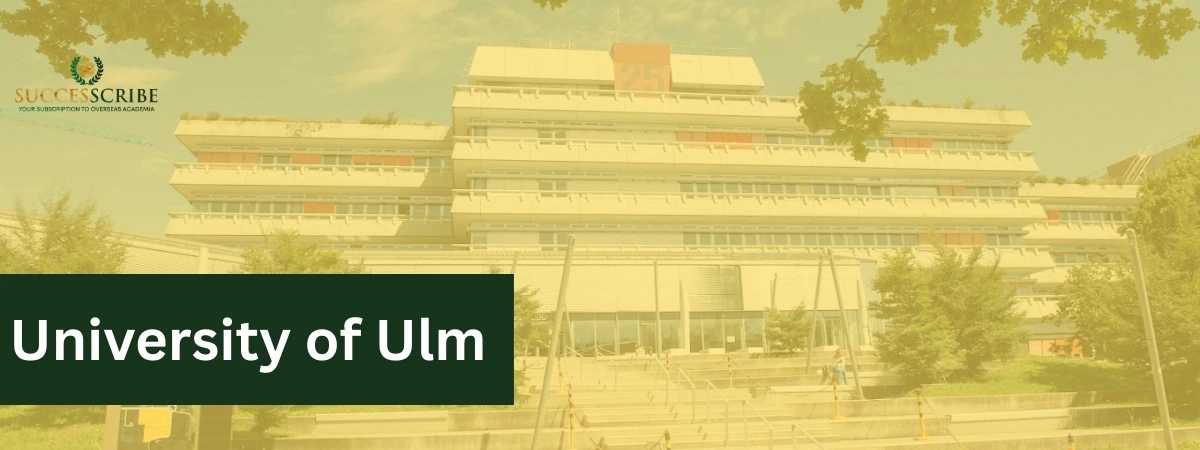Germany has become one of the most popular study destinations in the world, recently surpassing the UK and Canada in international student numbers. As per DAAD (2025), over 405,000 international students are enrolled in German universities – a 10% increase from last year. Indian students form the largest group, with around 59,400 enrolled in 2025, up from 49,483 in 2024 – a 20% growth in just one year. The reason is simple: world-class education, tuition-free public universities, and strong job prospects.
If you are dreaming of world-class education, affordable tuition, and excellent career prospects, learning how to get Admission in Public University in Germany is the first step to turning your aspirations into reality.
Choosing to study in Germany means choosing quality, affordability, and a secure future – making it the perfect time to learn how to get admission in a German public university.
Understanding the Core Requirements to Get Admission in Public University in Germany
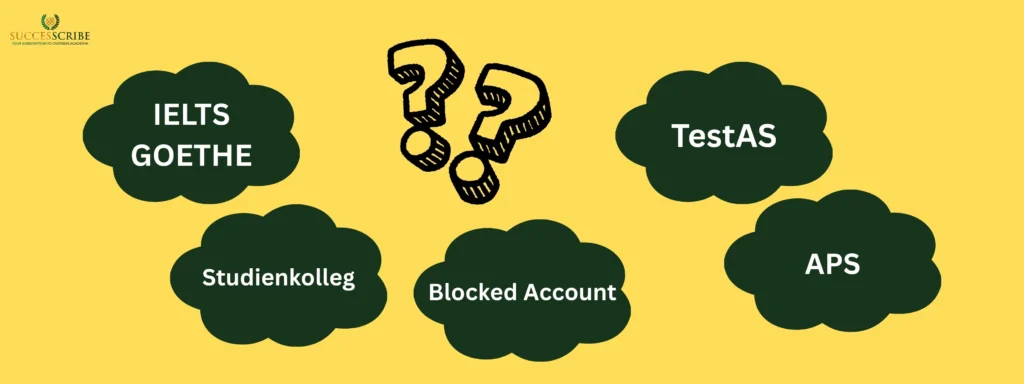
Before you fall in with a specific program or university, you must first pass through the gateway of core requirements. These are the non-negotiable prerequisites that form the bedrock of your application. While the philosophy of “no tuition fees” is a major draw, the German admission system is built on principles of academic preparedness and self-sufficiency. Understanding the core requirements is crucial for international students who want to know how to get Admission in Public University in Germany successfully.
The requirements differ significantly between Bachelor’s and Master’s levels. Understanding this distinction is your first critical step. The following table provides a high-level overview before we dive into the details.
| Requirement | For Bachelor’s Applicants | For Master’s Applicants |
| Academic Qualification | School-Leaving Certificate (HZB): Must be equivalent to the German Abitur. May need Studienkolleg | Bachelor’s Degree: An undergraduate degree that is recognized and relevant to the Master’s program. |
| Proof of Finances | €11,904 in a Blocked Account: Mandatory for the student visa and residence permit. | €11,904 in a Blocked Account: Mandatory for the student visa and residence permit. |
| Language Proficiency | Strictly aligned with the program: German for German-taught programs, English for English-taught programs. | Strictly aligned with the program: Often more English-taught options available. |
| Specialized Tests | Sometimes TestAS or entrance exam for certain fields | Sometimes required (e.g., GRE, GMAT) for highly competitive programs like MBAs or Engineering. |
| Key Documentation | School certificates, CV, Letter of Motivation, APS (for Indians). | Bachelor’s transcripts & degree, CV, Strong Letter of Motivation, Module Handbooks, APS (for Indians). |
This is the most fundamental requirement. The German system needs to be sure your previous education aligns with their standards.
For Bachelor’s Degree Seekers: The “Hochschulzugangsberechtigung” (HZB)
Your secondary school leaving certificate is your ticket to entry. It must be recognized as a “University Entrance Qualification” or Hochschulzugangsberechtigung (HZB).
How to Check: The official resource is the Anabin database. This database dictates whether your certificate is accepted directly, conditionally, or if you need to attend a preparatory school.
The Two Common Scenarios:
- Direct Subject-Specific Entrance: Your certificate (e.g., a high-ranking International Baccalaureate, A-Levels with specific subjects) is recognized directly for admission to an academic university (Universität). You can apply straight away.
- Indirect Entrance via Studienkolleg: Many school certificates, including the Indian Standard 12 (from boards like CBSE, ICSE) with less than 70-80%, are not directly recognized. This leads to a vital pathway:
- The Studienkolleg: A one-year, intensive preparatory course that bridges the academic gap. It concludes with a comprehensive assessment exam called the Feststellungsprüfung (FSP). Passing this exam grants you a German HZB, specific to a subject field (e.g., T-Kurs for Engineering, M-Kurs for Medicine).
Key Fact for Indian Students The APS India Certificate has become a mandatory pre-requisite. The Academic Evaluation Centre in New Delhi verifies your academic documents. You must complete this process before applying to most universities and before your visa appointment.
For Master’s Degree Seekers: The Recognized and Relevant Bachelor’s Degree
The focus shifts from your school results to your undergraduate performance.
- Recognition: Your previously earned Bachelor’s degree must be from an accredited institution recognized in Germany. The Anabin database is again your best friend here.
- Relevance: This is crucial. The content of your Bachelor’s degree must be thematically relevant to the Master’s program you are applying for. A Bachelor’s in Business Administration might not suffice for a Master’s in Data Science unless you have a significant number of relevant credits.
- Grade Point Average (GPA): German universities use a unique grading system (1.0 is the best, 4.0 is the minimum passing grade). They will convert your GPA into the German system. Most competitive programs have a NC (Numerus Clausus), a grade cutoff. A good to excellent GPA in your Bachelor’s is essential.
- Credit Points: Most Master’s programs require the completion of a Bachelor’s degree worth 180 ECTS (European Credit Transfer System) credits or the equivalent (typically a 3-year honors degree).
Documents required for Admission in Public Universities in Germany
Most universities ask for a standard set of documents. Exact requirements and formats differ slightly by university. Submitting the correct documents on time is a key milestone in successfully completing how to get Admission in Public University in Germany.
Standard document checklist (Bachelor’s & Master’s)
- Application form (online).
- High school diploma/secondary certificate (for Bachelor’s) or Bachelor’s degree transcript & diploma (for Master’s).
- Official transcripts with grading scale and translations (if not in German/English).
- Curriculum vitae (CV) – Europass or equivalent recommended.
- Statement of Purpose / Motivation Letter (SOP).
- Letters of Recommendation (1–3), usually required more for Master’s.
- Language certificate (IELTS/TOEFL for English or TestDaF/DSH for German).
- Passport copy (photo page).
- Passport-style photograph.
- Proof of application fee payment (if applicable).
- APS certificate (for Indian students – see APS section).
Uni-assist: What it is and when to use it
uni-assist evaluates international application documents for many German universities (around 180 partner universities). If your target university uses uni-assist:
- You submit an initial application and upload certified documents.
- uni-assist verifies your eligibility and forwards the result to the university (if positive).
- There is a fee per application (plus a smaller fee for additional programs).
- Use uni-assist to save time — they standardize the assessment of foreign certificates.
APS (Academic Evaluation Centre) – special note for Indian students
What is APS? The APS (Akademische Prüfstelle) is the Academic Evaluation Centre used by the German missions to verify authenticity of school/university certificates for applicants from certain countries – including India. Indian applicants often need an APS certificate to apply for a student visa and sometimes for the university application itself. APS checks academic documents and issues a verification certificate. Start APS early as processing takes time.
Steps for APS (India):
- Create APS online account (APS India official site).
- Submit scanned documents and pay fees.
- Attend an interview/test (depends on APS requirements) and get the APS certificate (physical or electronic).
- Attach APS certificate with your university application / visa documents.
Visa & residence permit (non-EU students)
After you receive the unconditional admission letter, apply for a German student visa at the German embassy/consulate in your country.
Essentials for visa application (typical list)
- Valid passport.
- Recognized admission letter from a German public university.
- Proof of sufficient funds (blocked account or scholarship/guarantee). Authorities typically asked for evidence of €11,904.
- Proof of health insurance.
- APS certificate (for Indian students) if required.
- Passport photos, CV, motivation letter, proof of previous qualifications.
- Visa fee payment and appointment.
Processing time: Varies – schedule the consulate appointment early; allow 4–12 weeks depending on season and country.
Suggested Post: Germany student visa rejection rate
Top public universities in Germany (short list – useful targets)
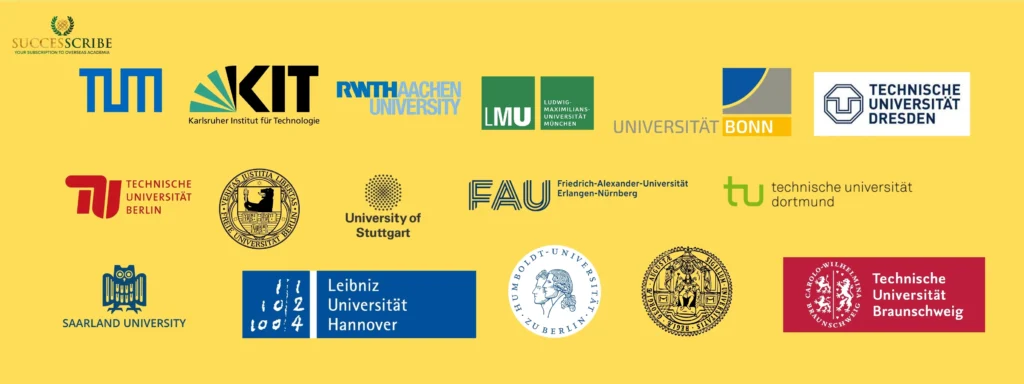
Targeting the right universities helps students strategically plan how to get Admission in Public University in Germany. Below is a sample of top public universities commonly sought by international students. Rankings change year-to-year – always verify on the official rankings and university sites.
| University | City | Language of Instruction |
| Technical University of Munich (TUM) | Munich | German & many English Master’s programs |
| Ludwig-Maximilians-Universität München (LMU) | Munich | German & English (postgrad) |
| Heidelberg University | Heidelberg | German & English (research & master’s) |
| RWTH Aachen University | Aachen | German & English (engineering masters) |
| Karlsruhe Institute of Technology (KIT) | Karlsruhe | German & English |
| Freie Universität Berlin | Berlin | German & English |
| Humboldt-Universität zu Berlin | Berlin | German & English |
| University of Freiburg | Freiburg | German & English |
| University of Göttingen | Göttingen | German & English |
| University of Bonn | Bonn | German & English |
Entrance exams: TestAS, GRE, GMAT and when they matter
Preparation for entrance exams can strengthen your application and boost your chances in how to get Admission in Public University in Germany.
- TestAS: a general aptitude test for Bachelor programs; some universities request it or consider it for selection in high-demand fields.
- GRE / GMAT: rarely mandatory for public German universities; may be considered for competitive Master’s programs (e.g., business schools) or international programs that benchmark using global criteria.
- Subject-specific entrance tests / portfolio reviews: required for arts, music, architecture, or design programs (portfolio/interview).
Understanding the German University System
Familiarity with Germany’s academic landscape is vital to smoothly navigate how to get Admission in Public University in Germany. Germany’s higher education landscape consists of three main types of institutions:
- Universities (Universitäten): These focus on theoretical knowledge and research, offering Bachelor’s, Master’s, and Doctoral programs across various disciplines.
- Universities of Applied Sciences (Fachhochschulen): These institutions emphasize practical, application-oriented learning with strong industry ties.
- Colleges of Art, Film, and Music: Specialized institutions for creative fields requiring talent-based admission.
Most public universities in Germany are state-funded and maintain high academic standards recognized worldwide. They operate on two main intake periods: the Winter Semester (starting in September/October) and the Summer Semester (starting in March/April).
Cost of studying in a public university (real numbers & INR conversions)
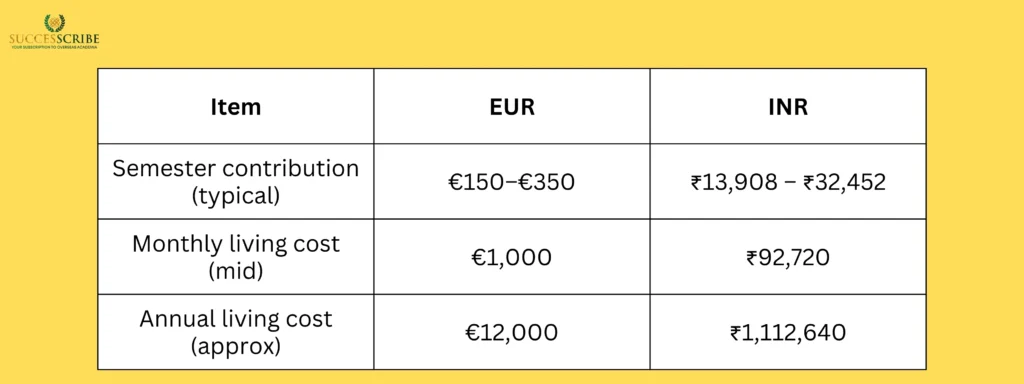
Although many public universities do not charge tuition, students must budget for semester contributions, living costs, health insurance, and other expenses.
- Semester contribution / semester ticket: €100–€350 per semester (covers administration, student services, often includes a public transport ticket).
- Monthly living costs: typical guideline €850–€1,100 per month (rent, food, transport, health insurance). Some sources estimate minimum €992/month as a conservative baseline.
- Health insurance: compulsory for students (public or private student insurance) — approximate €80–€120/month for statutory student insurance for those under 30.
- Visa & residence permit fees: visa application costs and local residence permit fees vary (approx €75–100 for visa application; check consulate).
- One-time setup (initial accommodation, deposit): €500–€1500 typical.
| Item | EUR | INR |
| Semester contribution (typical) | €150–€350 | ₹13,908 – ₹32,452 |
| Monthly living cost (mid) | €1,000 | ₹92,720 |
| Annual living cost (approx) | €12,000 | ₹1,112,640 |
What German Public Universities Look Into When Evaluating Candidates

Strong grades, relevant experience, and a compelling motivation letter are key elements in how to get Admission in Public University in Germany. Admission to a public university in Germany is competitive, especially for popular programs like engineering, computer science, business, and medical sciences. German universities focus on academic merit, preparedness, and motivation, rather than solely on standardized test scores.
1. Academic Qualifications and Grades
The most important factor is your academic record. Universities check:
Relevance of prior education:
- For Bachelor’s programs, they evaluate your secondary school certificate (e.g., Indian 10+2, IB, A-levels).
- For Master’s programs, your Bachelor’s degree must be equivalent to a German Bachelor’s degree in the same or related field.
Grades & GPA:
- Bachelor’s: 70–75% in relevant subjects (Indian grading scale) or top 20–30% of class.
- Master’s: GPA ≥ 2.5 (on German scale 1.0–5.0, where 1.0 = best).
Course content evaluation:
Universities assess if your previous studies cover necessary prerequisite subjects for the program you are applying to.
Minimum Academic Requirements for International Students
| Program Level | Typical Requirement | Notes |
| Bachelor’s | Secondary school certificate, 70–75%+ | Some fields (e.g., engineering) may require strong maths/science grades |
| Master’s | Bachelor’s degree in related field, GPA ≥ 2.5 | Selective programs may require GPA ≥ 2.0 |
| Special programs | Portfolio, interview, or entrance test | Arts, design, music, architecture |
2. Language Proficiency
German public universities offer programs in German and English. They evaluate:
- German-taught programs: TestDaF, DSH, or Goethe certificates (usually TestDaF TDN 4 minimum).
- English-taught programs: IELTS, TOEFL, or PTE scores are checked to ensure candidates can understand lectures, write assignments, and participate in discussions.
Even for English programs, basic German is valued as it shows adaptability and integration potential.
3. Motivation & Personal Statement
Universities want candidates who are serious, focused, and goal-oriented. They evaluate:
- Why you want to study this program.
- How your background prepares you for success.
- Your career plans after graduation.
A well-written SOP demonstrates commitment, clarity, and academic maturity.
4. Letters of Recommendation
For Master’s programs, some universities require 1–3 academic or professional references. Admissions committees look for:
- Academic performance in relevant subjects.
- Professional qualities like teamwork, responsibility, and initiative.
- Endorsement of your potential to succeed in the program.
Recommendations from professors or supervisors with direct knowledge of your skills carry the most weight.
5. Standardized or Entrance Exams
- TestAS: Aptitude test for international Bachelor’s applicants; universities use it to assess analytical skills, problem-solving, and subject knowledge.
- GRE / GMAT: Rarely required in public universities, but may strengthen the application for business or competitive Master’s programs.
- Subject-specific exams / portfolio review: Required for arts, design, architecture, or music. Universities assess creativity, technical skill, and suitability for the program.
6. Extra-Curricular Achievements and Experience
While not always mandatory, German universities value well-rounded candidates. This includes:
- Internships or research experience relevant to your field.
- Volunteering or social engagement.
- Participation in competitions, hackathons, or projects that demonstrate initiative and skill.
7. Eligibility & Certification Verification
Universities verify whether:
- Your certificates are authentic (sometimes via APS for Indian students).
- Your prior education meets German equivalency standards.
- Transcripts and translations are accurate.
This step ensures that candidates meet official academic standards before moving forward in the selection process.
8. Fit with Program & University
- Universities want candidates who align with their program structure and academic philosophy.
- A strong SOP, relevant experience, and demonstrated interest in research or applied skills increase your chances.
- Some programs may conduct interviews or online assessments to gauge fit.
Study in Germany: Admission in Top Public Universities with Successcribe
- Top Public Universities: Get placement in Germany’s most prestigious public universities.
- Expert Guidance: Complete support from application to visa and documentation.
- Personalized Counseling: Tailored plans to match your study and career goals.
- Global Opportunities: Unlock world-class education and international job prospects.
- Trusted Partner: Thousands of students have achieved their study abroad dreams with us.
Start your journey to Germany’s top public universities today with Successcribe!
Conclusion
Understanding how to get admission in public university in Germany is the key for international students to access world-class education, tuition-free programs, and excellent career opportunities. By meeting the academic, language, and document requirements, and preparing a strong motivation letter, students can secure a place in Germany’s top public universities.
FAQs
How can Indian students apply for German public universities?
Follow the program page – prepare documents, get APS (if required), apply via uni-assist or the university portal, and then apply for a student visa.
Is studying in Germany free for international students?
Many public universities charge no tuition, but you pay a semester contribution (€100–€350) and living costs.
What is the minimum IELTS requirement?
Depends on program – typically IELTS 6.0–7.0. Always verify on the program page.
Can I apply without knowing German?
Yes – many programs are offered in English. For everyday life, basic German improves integration and job prospects.
How long does it take to get admission?
Admission timelines vary; after applying it can take 4–12 weeks for processing, sometimes longer for complex evaluations. uni-assist has timelines on its portal.
Related Post
Total cost of masters in Germany
Part time jobs in Germany for students
Daad scholarship requirements
Ielts requirement for germany student visa





